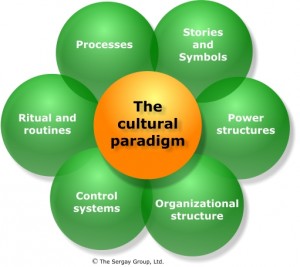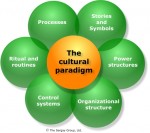We can learn much about how this works by watching the various groups in Scripture muddle their way through life while trying to serve God.
When we understand the cultural and historical background to much of the development of the people of God in Scripture, here is what we see:
They had about as much institutional structure as street theater: lots of improvisation, plenty of borrowing and stealing from whomever they bumped into, and free adaptation of other people’s ideas and property for their own purposes; but precious little polity, and no property at all (The Astonished Heart,
19).
 Whether people realize it or not, large portions of what the Israelites said and did, as well as large portions of what the Early Church said and did, came not from heavenly revelation, but from cultural emulation. They saw what was going on in the culture and countries around them, and incorporated much of what they saw into their own lives and practice.
Whether people realize it or not, large portions of what the Israelites said and did, as well as large portions of what the Early Church said and did, came not from heavenly revelation, but from cultural emulation. They saw what was going on in the culture and countries around them, and incorporated much of what they saw into their own lives and practice.
This was true of Israel as well. Much of Israel’s symbols, systems, stories, rituals, routines, processes, power structures, and organizational structures were borrowed almost directly from the surrounding culture, with a few minor (but important) divinely inspired modifications.
Churches can do the same. We must not run from culture, but watch, observe, and learn from culture, believing that God is at work there just as He is at work in our own lives, and that the needs and issues of culture can be championed by the church.
Christians ought to try to create a style of life which does not differentiate them from others, but yet permits them to escape from the stifling pressure of our present form of civilization.
The only successful way to attack these features of our modern civilization is to give them the slip, to learn how to give them the slip, to learn how to live on the edge of this totalitarian society, not simply rejecting it, but passing it through the sieve of God’s judgment.
Finally, when communities with a “style of life” of this kind have been established, possibly the first signs of a new civilization may begin to appear (The Presence of the Kingdom,
46).
This is how the church transforms and redeems society and culture. We first learn from it and draw our cues from culture, we sift them through the guiding principles of Scripture to see what the Holy Spirit might be doing in our time and location.
Then we live as closely as possible with the society so that we may infect it with the Gospel of Jesus Christ and the overpowering influence of the Kingdom of God.
When we do this, church and culture changes together, and the ways of Jesus become standard practice among all. I believe that much of the advances in medicine, education, science, human rights, and politics are due to this infective influence of God’s Kingdom in this world.
We must remember, however, that while we can take missional cues from culture, we will not finally and completely see culture redeemed. “No, we’re not going to make our world all better. Hate to break it to you. That’s United Nations talk. That’s Olympic opening ceremonies talk. That’s activist groups bullhorning in the streets talk. But isn’t Bible talk, nor is it reality” (Subversive Kingdom, 215).




may i suggest wayne meeks, the first urban Christians